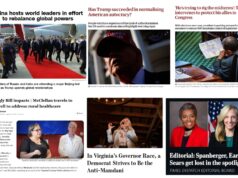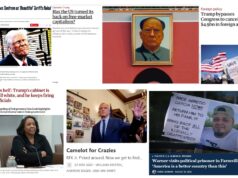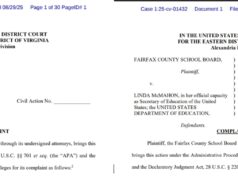The Right apparently believes the Mueller Report is a vindication for their side. I can see why they’d think that. But I see it differently. I realize I could be wrong, but what the conclusion of this investigation signifies – as best as I can make out, trying hard – is something puzzling about Robert Mueller: What is it that made Mueller so timid in his resolution of his investigation?
I’m making that judgment of timidity on the assumption that we know at least this much about Mueller’s way of concluding the case:
- that he decided not to bring any indictments on any crimes involving the Trump campaign and the Putin regime working together to make Trump president.
- that Mueller never asked for permission for anything that he didn’t receive. And
- that Mueller goes a long way to absolving Trump of conspiracy with the Russians.
Meanwhile, on the question of charging obstruction of justice, Mueller apparently left it to Barr and Rosenstein to decide. (Which they did, apparently, in Trump’s favor.) [UPDATE: See my comment, below, where former AG Eric Holder doubts the truth of Barr’s claim on this point.]
For the first time, I’m wondering about Robert Mueller.
From the time he was appointed, and I heard so many people say such wonderful things about his character, his exceptionally high level of competence, his utter sense of responsibility, I’ve seen Mueller as that paragon, the ideal Eagle Scout, the hero who volunteers for battle, the man for whom integrity and principle guide his every movement, the champion of the rule of law.
Many people use the word “hero” to capture Mueller’s essence.
I imagined Mueller could see the danger that Trump poses to America, including most definitely to the constitutional and legal order of the United States to which Mueller had dedicated his life.
How could he not see it, when he’s reportedly such a “by the book” kind of guy, and the President threatening the nation has made it his lifetime M. O. to piss on all rules and on any concept of fairness?
So he would understand that he had to play to combined role of 1) the agent of justice applying the rule of law by the book, and 2) heroic rescuer of his nation at a dangerous moment.
Seeing the danger, the hero would fight to protect the good and the true and the just against their opposites in the form of the President he sees before him, like St. George saw the dragon.
He’d fight with the weapons at hand –i.e. he would make cases where cases could reasonably be made.
But Mueller made neither case: No charges brought– Even though it seems that there are cases on both the collusion angle and the obstruction angle that could reasonably have been brought.
This seems visible just with what’s publicly known.
On collusion, it seems to me that the whole episode of the Trump Tower meeting would provide a good prosecutor with enough circumstantial evidence to persuade a reasonable jury beyond a reasonable doubt showed a crime: soliciting “something of value” from a foreign entity to help win a federal election.
(And I think there’s a case to be made for their knowingly being in on stolen property. Two conspiracies to commit two crimes.)
(As Adam Schiff declared the other day: We know that there’s been collusion, what we don’t know is why there are no charges brought.)
And on obstruction, it seems there was a fight to fight. Though I might be wrong — it makes me uncomfortable to second guess this man in whom I’ve had almost complete confidence — at least I’m not the only one to see a fight that was worth fighting, that Mueller has just walked away from:
A very smart Watergate prosecutor — Jill Wine-Banks — declared relatively early in this unfolding Trump scandal saga (on footage which MSNBC made into a meme) that she though she could make a good case for obstruction of justice. And the pattern of obstructive conduct has only become more thoroughly enacted in the year and a half since she expressed such confidence that the charge was already worth bringing.
Trump’s conduct toward the investigation has been obstructive from start to finish—breaking all kinds of new ground in violating norms by which we protect the integrity of the American system of justice and the rule of law. And all this unprecedented attack has been performed right in front of everyone’s eyes.
(Meanwhile, off in the background, we now discover, two separate dedicated defenders of justice — Rod Rosenstein and Preet Barrara — each separately contemplated whether to do the unthinkable: record their conversations with the President of the United States, who keeps behaving so inappropriately with respect to the parts of the system of justice involved — or in Barrara’s case, potentially involved — with investigations to assure that this President does not operate above the law.)
No charges?
The case needed to be made: All of America has seen Trump do all sorts of things about the investigation that should not be OK for a President to do. (Like ragging on AG Sessions for having “recused” himself, thus taking himself out of position to protect Trump from the rule of law, which the Mueller investigation represented? Like going after Comey’s witnesses one after the other, to drive out of the FBI, robbing one of his retirement funding.)
But no, for some reason, Mueller decides not to fight that fight– a fight one would think our hero would know needed to be fought to protect American democracy by not allowing these dangerous precedents to stand unchecked, thus greasing the skid toward autocracy, where the law become the instrument of power rather than a check upon it.
Dangerous precedents should be checked and defeated as early as possible, because in time the autocracy can become impossible to oppose. (Like the situation in Russia now, by all appearances, and perhaps in Turkey, not to mention the various murderous dictatorships that blemished the 20th century.)
So where was this hero we heard about? Why wouldn’t our St. George wield the sword to slay the dragon? Why didn’t our Ivanhoe fight against wicked Prince John, who uses his power unjustly, caring not at all about the well-being of the people?
The pattern of obstruction is clearly visible, and I would bet that a jury could reasonably be persuaded to convict even just on the basis just of the evidence that’s been right in front of our eyes.
For the first time, I’m wondering about Robert Mueller.
So if it’s the case that
- Mueller sees well the danger Trump poses, and
- if the evidence really would admit of reasonable prosecutions of people for crimes, and
- if in addition it seems incredible to say there was “no collusion” or conspiracy involving the campaign when there’s all this evidence that together creates a coherent picture,
what is it that made Mueller so timid in his resolution of the case?
If he’s given a gift to the forces attacking the system he loves, why would he do that?
Is there any chance that Robert Mueller will contradict what Barr is reporting? Seems tough to believe, since Barr would put himself in what would surely eventually become a very bad, losing position.
Hence the assumption that we do know a few things about what Mueller did and didn’t do, and that those choices seem to pose a puzzle about how he’s played his endgame, by punting as profoundly as it appears that he chose to do.














